Are you curious about the state of SEO in 2023? Then look no further.
We’ve curated, vetted, and categorized a list of up-to-date stats below.
Click to jump to a category or keep reading for our top SEO statistics.
These are the most interesting SEO stats we think you should know:
- 68% of online experiences begin with a search engine. (BrightEdge)
- 0.63% of Google searchers click on results from the second page. (Backlinko)
- 53.3% of all website traffic comes from organic search. (BrightEdge)
- 92.96% of global traffic comes from Google Search, Google Images, and Google Maps. (SparkToro)
- SEO drives 1,000%+ more traffic than organic social media. (BrightEdge)
- 60% of marketers say that inbound (SEO, blog content, etc.) is their highest quality source of leads. (HubSpot)
- SEO leads have a 14.6% close rate. (HubSpot)
These stats about ranking on Google may surprise you.
- 90.63% of pages get no organic search traffic from Google. (Ahrefs)
- The top-ranking page gets the most search traffic only 49% of the time. (Ahrefs)
- Only 5.7% of pages will rank in the top 10 search results within a year of publication. (Ahrefs)
- 7.4% of top-ranking pages don’t have a title tag. (Ahrefs)
- Google rewrites title tags 33.4% of the time. (Ahrefs)
- Google is now 33% more likely to rewrite title tags. (Ahrefs)
- When Google ignores the title tag, it uses the H1 tag 50.76% of the time instead. (Ahrefs)
- Google is 57% more likely to rewrite title tags that are too long. (Ahrefs)
- 25.02% of top-ranking pages don’t have meta descriptions. (Ahrefs)
- 40.61% of pages have meta descriptions that truncate. (Ahrefs)
- Google shows meta descriptions in search results only 37.22% of the time. That rises to 40.35% for fat-head keywords and drops to 34.38% for long-tails. (Ahrefs)
- The average top-ranking page also ranks in the top 10 search results for nearly 1,000 other relevant keywords. (Ahrefs)
- The average page in the top 10 is 2+ years old. (Ahrefs)
- 33% of websites pass the Core Web Vitals threshold. (Ahrefs)
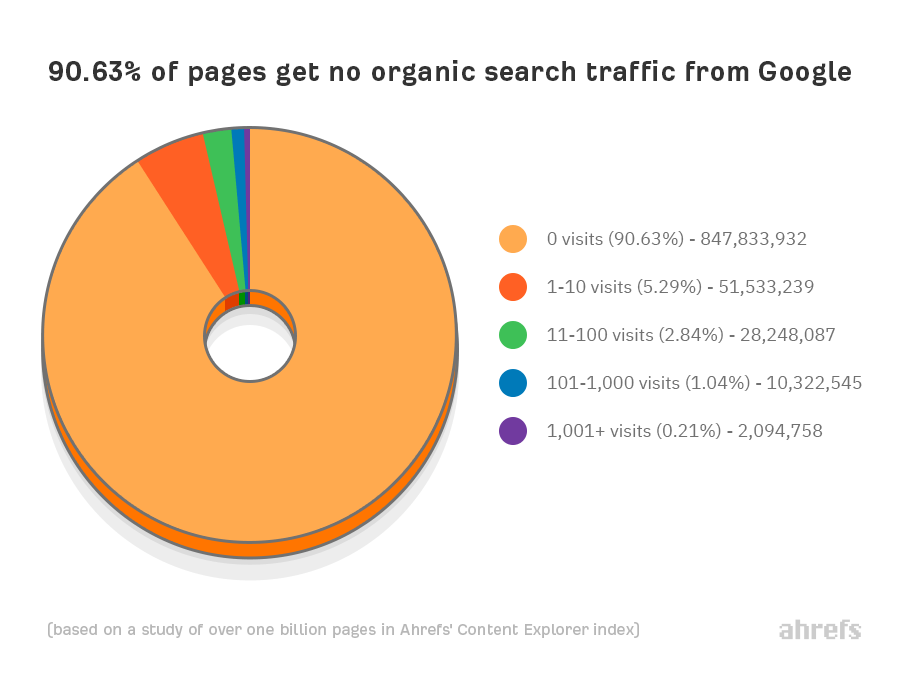
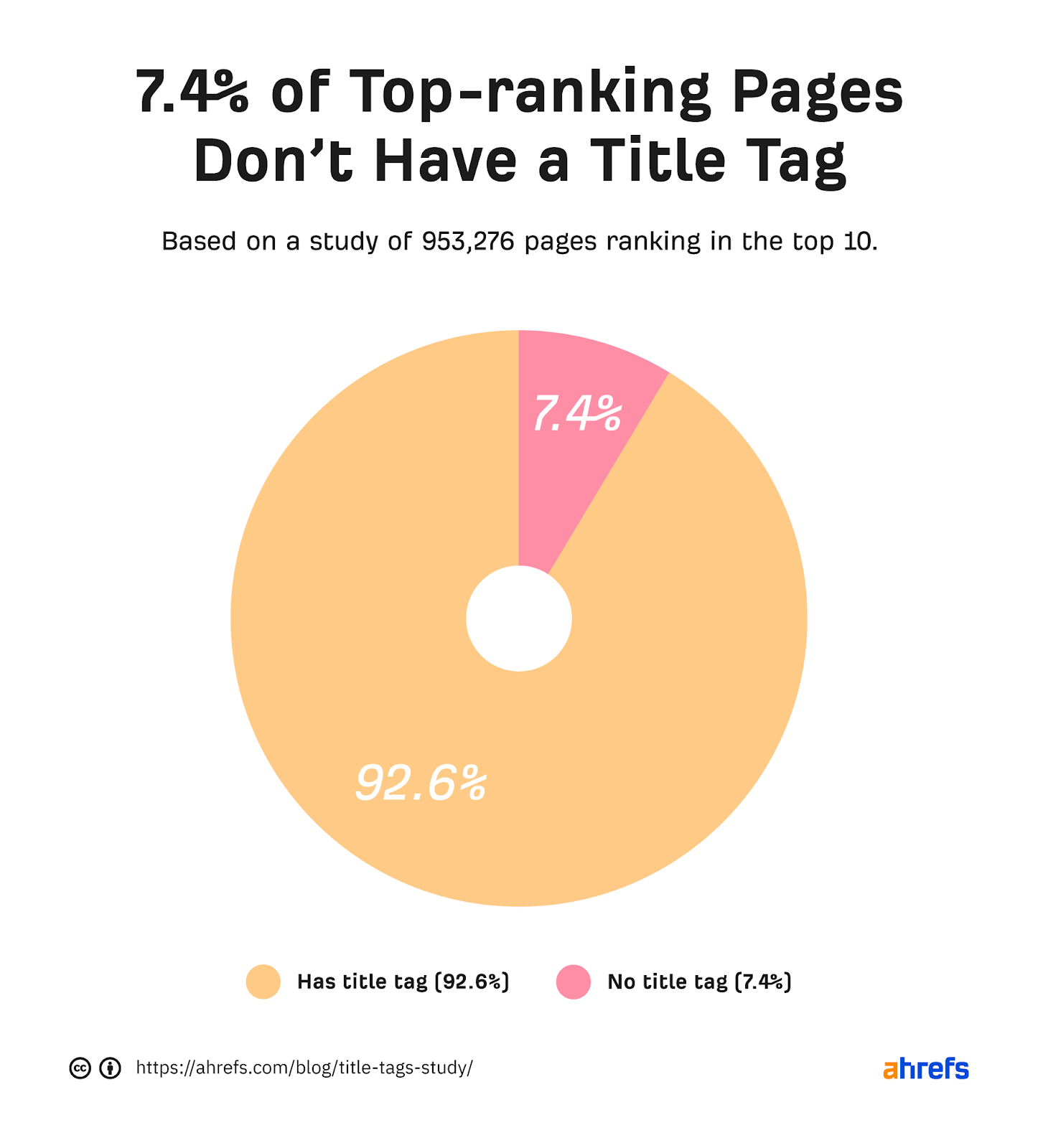
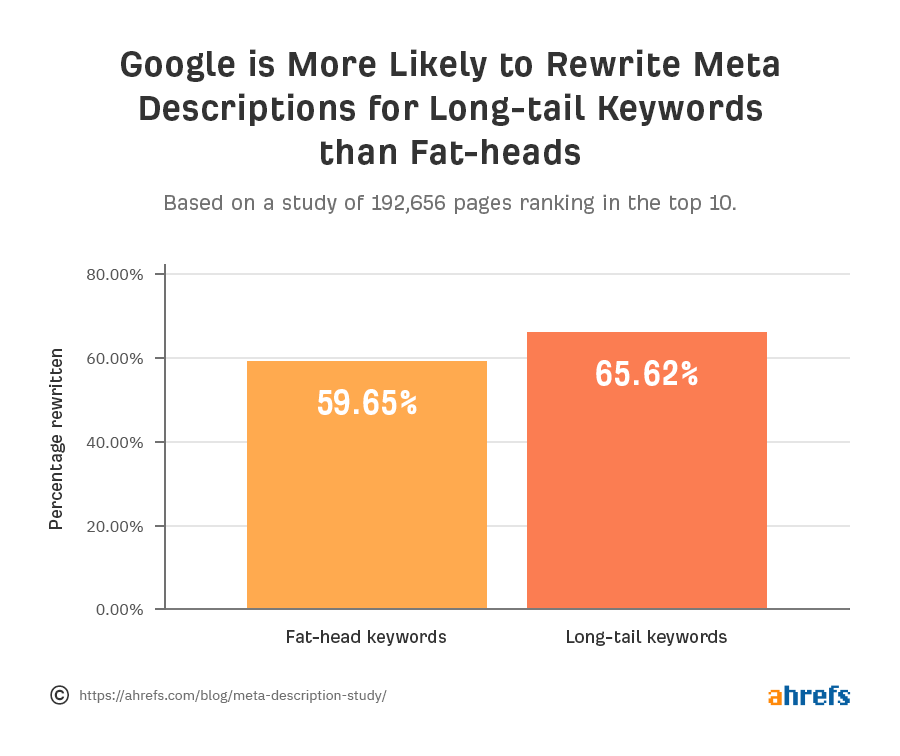
Google says that backlinks are one of its top three ranking factors. Check out these link-related stats.
- 66.31% of pages have no backlinks. (Ahrefs)
- Most top-ranking pages get “followed” backlinks from new websites at a pace of +5%-14.5% per month. (Ahrefs)
- Generally speaking, the more backlinks a page has, the more organic traffic it gets from Google. (Ahrefs)
- The average cost of buying a link is $361.44. (Ahrefs)
- The average cost of publishing a paid guest post is $77.80. (Ahrefs)
- 73.6% of domains have reciprocal links, meaning that some of the sites they link to also link to them. (Ahrefs)
- 43.7% of the top-ranking pages have some reciprocal links. (Ahrefs)
- 66.5% of links to sites in the last nine years are dead. (Ahrefs)
- 10.6% of all backlinks to the top 110,000 sites are nofollow. (Ahrefs)
- 0.44% of links use “rel=ugc” and 0.01% use rel=“sponsored”. (Ahrefs)
Most SEO campaigns begin with keyword research. Here are some stats about how people are searching on Google.
- 94.74% of keywords get 10 monthly searches or fewer. (Ahrefs)
- 0.0008% of keywords get more than 100,000 monthly searches. (Ahrefs)
- Around 8% of search queries are phrased as questions. (Moz)
- 15% of all Google searches have never been searched before. (Google)
- 91.45% of search volumes in Google Ads Keyword Planner are overestimates. (Ahrefs)
- Google Ads Keyword Planner overestimates search volumes 54.28% of the time and is roughly accurate 45.22% of the time. (Ahrefs)
- 46.08% of clicks in Google Search Console go to hidden terms. (Ahrefs)
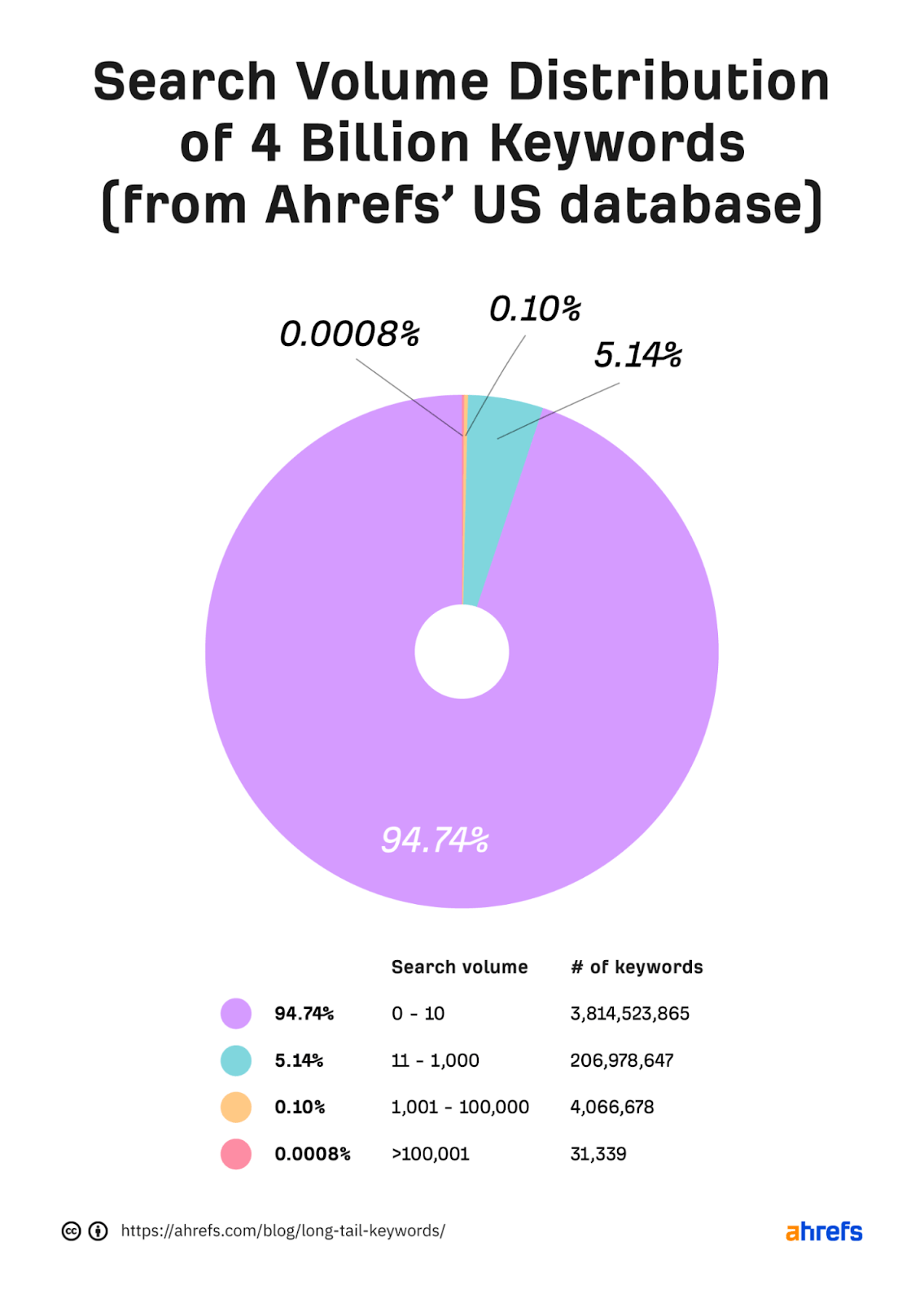
How much do SEO professionals charge for their services? Are you charging higher or lower than the average? Let’s look at the stats.
- 74.71% of SEOs charge a monthly retainer fee for their clients. (Ahrefs)
- For monthly retainers, $501–$1,000 per month is the most popular pricing tier. (Ahrefs)
- For hourly pricing, $100–$150 per hour is the most popular pricing tier. (Ahrefs)
- For per-project pricing, $501–$1,000 is the most popular pricing tier. (Ahrefs)
- 88.28% of SEOs charge $150/hour or less for their services. (Ahrefs)
- On average, SEOs who’ve been in business for over two years charge 39.4% more per hour, 102.41% more for monthly retainers, and 275% more for one-off projects than those who’ve been in business for less than two years. (Ahrefs)
- On average, SEOs serving the worldwide market charge 130.74% more than those serving the local market for monthly retainers. (Ahrefs)
- The mean salary for a U.S.-based SEO professional is $60,548 per year. (Backlinko)
As SEOs, it is important to understand where search engines are right now—and where they’re going.
- 12.29% of search queries have featured snippets in their search results. (Ahrefs)
- The #1 result in Google’s organic search results has an average CTR of 27.6%. (Backlinko)
- The top three Google search results get 54.4% of all clicks. (Backlinko)
- There are an estimated 3.5 billion searches on Google each day. (Internet Live Stats)
- 39% of purchasers are influenced by a relevant search. (Think With Google)
- 61.5% of desktop searches and 34.4% of mobile searches result in no-clicks. (SparkToro)
- Google accounts for around 83% of the global search market. (Statista)
If you serve customers locally, you should focus on improving your local search presence so more people can find you. These stats show the importance of good local SEO.
- 30% of all mobile searches are related to location. (Think With Google)
- 76% of people who search on their smartphones for something nearby visit a business within a day. (Think With Google)
- 28% of searches for something nearby result in a purchase. (Think With Google)
- Yelp appears in the top five search results for 92% of Google web queries that include a city and business category. (Fresh Chalk)
- 54% of smartphone users search for business hours, and 53% search for directions to local stores. (Think With Google)
- About 45% of global shoppers buy online and then pick up in-store. (Think With Google)
- “Where to buy” + “near me” mobile queries have grown by over 200% from 2017 to 2019. (Think With Google)
- Mobile searches for “store open near me” (e.g., “grocery store open near me”) have grown by over 250% from 2017 to 2019. (Think With Google)
- Mobile searches for “on sale” + “near me” (e.g., “tires on sale near me”) have grown by over 250% YOY from 2017 to 2019. (Think With Google)
We’ve had great success driving customers using video marketing. Are you doing it too? If not, these stats may surprise you.
- The number of comments, views, shares, and “likes” have a strong correlation with higher YouTube rankings. (Backlinko)
- 68.2% of first-page YouTube results are HD videos. (Backlinko)
- The average length of a first-page YouTube video is 14 minutes, 50 seconds. (Backlinko)
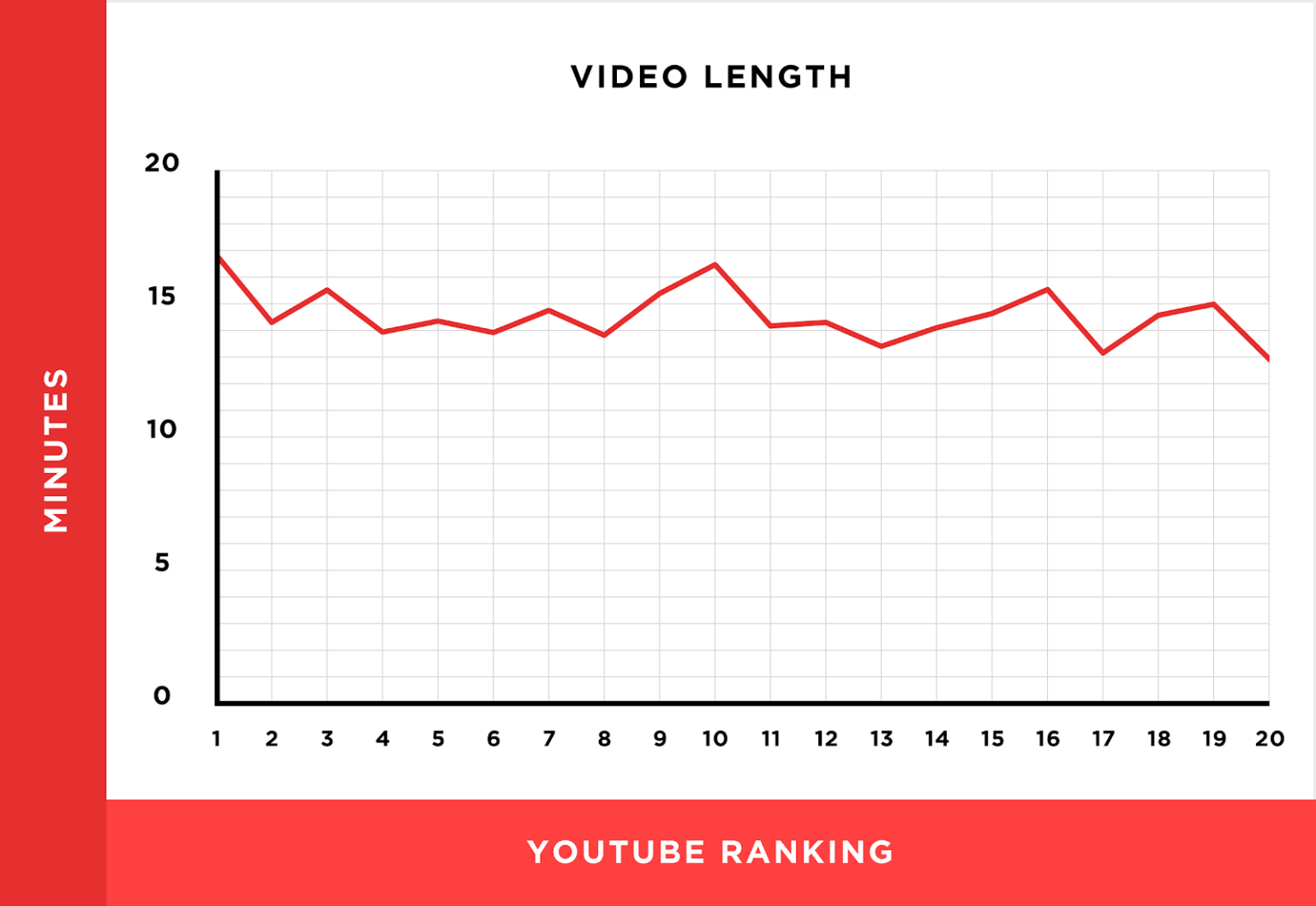
Google has moved to mobile-first indexing, and more people are using mobile search. No doubt, mobile SEO is incredibly important.
- 58.99% of all website traffic worldwide comes from mobile phones. (Statista)
- 72.6% of internet users will access the web solely via their smartphones by 2025. (CNBC)
- There are more searches on mobile than on desktop. (Think With Google)
- 51% of smartphone users have discovered a new company or product when conducting a search on their smartphones. (Think With Google)
- 18% of local searches on smartphones lead to a purchase within a day vs. 7% of non-local searches. (Think With Google)
- On average, ranking in position #1 on mobile gets you 6.74% of the clicks, whereas ranking in position #1 on desktop gets you 8.17% of the clicks. (SEOClarity)
- 56% of in-store shoppers used their smartphones to shop or research items while they were in-store. (Think With Google)
“Hey, Google. What’s the current state of voice search?”
- 40.7% of all voice search answers come from a featured snippet. (Backlinko)
- The typical voice search result is only 29 words in length. (Backlinko)
- Approximately 75% of voice search results rank in the top three for their corresponding queries. (Backlinko)
- The average voice search result has a ninth-grade reading level. (Backlinko)
- Websites with strong “link authority” tend to rank well in voice search. In fact, the average Domain Rating of a Google Home result is 76.8. (Backlinko)
- 48% of consumers are using voice for “general web searches.” (Search Engine Land)
Learn more
Check out these resources to learn more about SEO:




